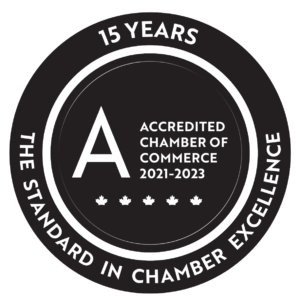The lack of hard data in our marketplace – an information gap that makes it difficult to begin to understand which skills are required for employment, what practices are the most promising in training youth to become productive citizens and employees, and how to identify the programs that do this best.
In order to address youth unemployment, two fundamentals need to be in place:
1. Skill Development and
2. Job Creation.
Our local employers need to work with local education providers so that students learn the skills they need to succeed at work, keeping in mind that government at all levels also have a crucial role to play. If industry, higher education institutions and policy-makers work more closely together to realize those goals, we’ll be doing right by students, workers, employers and Mississauga’s economic prosperity.
Most stakeholders within industry and higher education agree that a core part of these institutions’ mission consists of producing graduates suited to the needs of today’s labour market. Through business engagement focus groups held by Advantage Mississauga, MBOT, all parties (academia, business and students) agreed that getting a good match between employers’ requirements and workers’ fit with those requirements has huge economic implications.
Soft skills
What employers are looking for is not just a high level of specialized skills, but a larger ensemble of social qualities, sometimes called ‘soft skills’, critical in succeeding at jobs in today’s marketplace. Just what those soft skills are, and how much Canada’s universities, colleges and trade schools can and should teach them, is one of the most heated discussion topics in our nation’s public and economic policy.
We have consistently heard from employers that they’re looking for people with effective interpersonal, communication, teamwork, critical thinking and leadership skills. Most employers prefer to hire for fit and then train for specialized skills rather than the other way around. Employers often say that they hire for attitude and train for skill. So regardless of the work experience you bring to the table, a positive attitude is still the most important thing you can bring to your first job.
Employers have shared that some graduates might not have the office know-how; maybe they’ve never worked in an office before so everything’s new, whether it’s answering the phone, dress code expectations or the way to address people, i.e. ‘basic office etiquette’ and a sense of professionalism is lacking.
When employers are specifically asked about recent graduates, their complaints have nothing to do with academic skills. They often express the same concerns older generations have always had about young people — they are not conscientious enough, they don’t listen, they expect too much. While students feel they were “very or completely prepared” for the workplace, employers felt the students were not equipped with critical thinking or problem-solving skills.
Workplace fit
Most large employers in Canada participate in helping to create the workplace fit that employers are looking for by engaging over half of all undergrads in coops and internships, so they are quite satisfied with the quality of education that University and College students receive. However, small to medium sized businesses have a totally different perspective as they can rarely afford to engage students in these placements, due to the lack of resources for training. Since Schools are not specialized at providing what employers want, which is work-based skills and experience, employers need to be much more involved, not just in telling schools what they want but in providing opportunities for undergrads and new grads to get work experience and learn the relevant expertise. A different approach is needed: one where employers are not just consumers of skills, but are part of the system for producing them.
Todd Hirsh, Chief Economist with ATB Financial, noted in a newspaper last month, “What postsecondary education needs to do—be it through a liberal arts degree or a polytechnic program—is prepare the students not for a job, but for a lifetime of morphing careers”.
Rosa Lokaisingh, is our Business Innovation Connector at Advantage Mississauga. She can be reached at 905-273-6151 Ext. 390 or
[email protected]. Visit www.advantagemississauga.com





